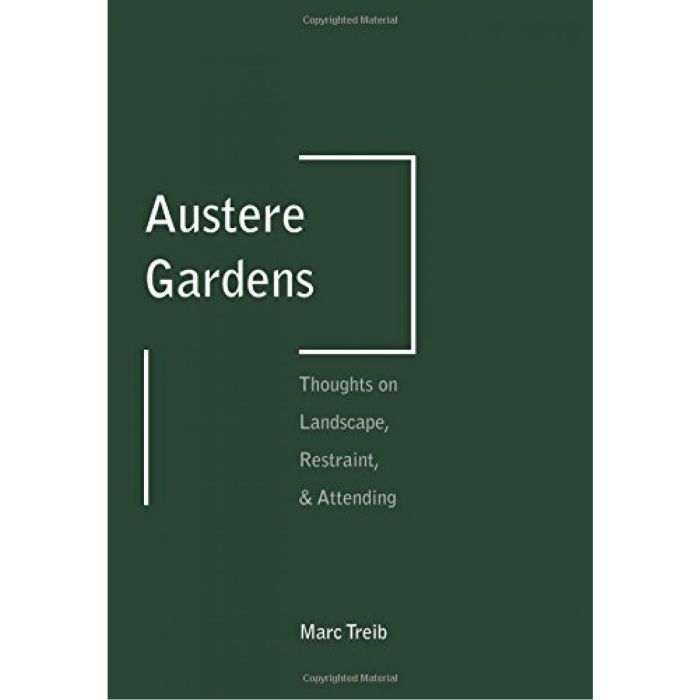My Cart
Your cart is empty
Looks like you haven't made your choice yet.
- Subtotal
Austere Gardens

Thoughts on Landscape, Restraint, & Attending
- Oro (ACC)
- Oro Editions
- Marc Treib
More Information
| Publisher | Oro (ACC) |
|---|---|
| ISBN | 9781935935384 |
| Author(s) | Marc Treib |
| Publication date | August 2016 |
| Edition | Paperback |
| Dimensions | 229 x 146 mm |
| Pages | 108 |
| Language(s) | Eng. ed. |
| Exhibition | Oro Editions |
Description
Austere Gardens suggests another way to look at the landscape, the garden, and perhaps the entire world around us. It suggests that being open to other ways of observing and sensing can yield new insights and rewards, and that interest is found in places unassuming and overlooked as well as those complex and assertive. Perceiving is only one half the story, however. Realising places using simple acts and reduced means is the other half. The history of garden-making reveals continued attempts to create an Eden, to surpass our given environment in abundance and delight, and by selected instruments transcend the constraints of site, topography, and climate. The alternative to this garden of inclusion lies in the landscapes of reduction and compression, for example the dry gardens of Japan. These might be termed austere gardens. The word austere, as used in this essay, does not imply asceticism, but merely modesty and restraint. Austere landscapes may first appear devoid of interest if noticed at all. To those who do not look beyond their surfaces, these sites, and the world outside them, usually appear plain and uninteresting, or even lacking of the very properties by which we define a garden. But there are sensual, aesthetic, and even philosophical, pleasures to be gained from these seemingly dull fi elds should we attempt to appreciate them. These qualities, normally associated with bundance and complexity, may be found in a different way, and at a different level, in austere terrain.

Austere Gardens
